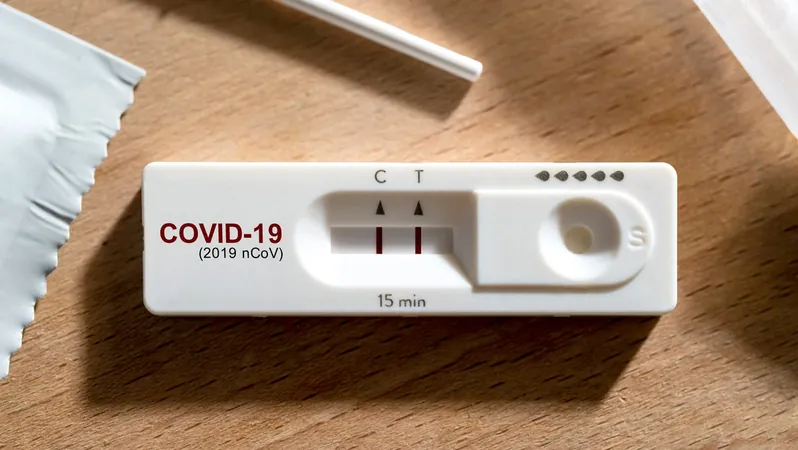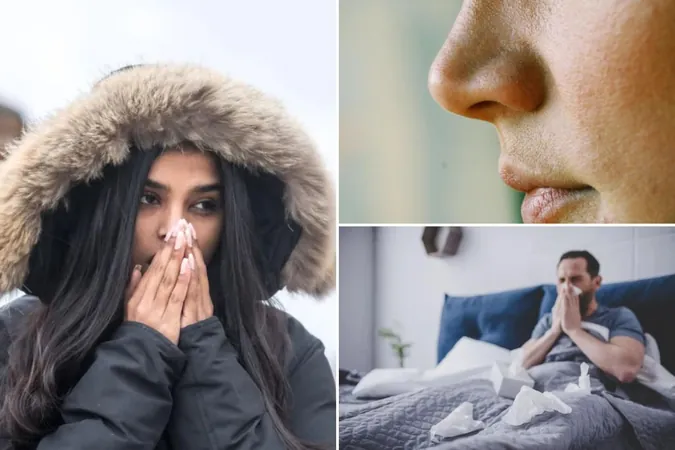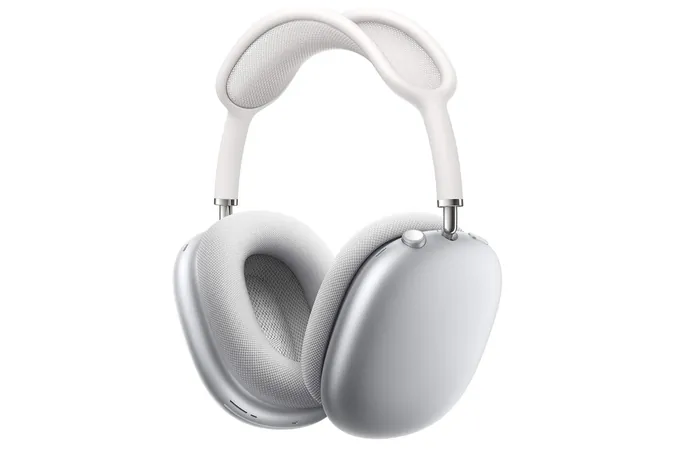
Can You Really Avoid COVID by Keeping Your Space Clean? Experts Share Essential Insights!
2024-10-07
Author: Ying
As the COVID-19 XEC variant, a descendent of Omicron strains KS.1.1 and KP.3.3, spreads rapidly, it's critical for everyone to understand how to protect themselves. This new strain, first identified in Europe, has found its way to the United States and could become the dominant variant this fall, according to Dr. Francesca Torriani, an infectious disease specialist at UC San Diego Health.
With the ongoing evolution of COVID-19, public health officials are bracing for a resurgence in cases. To help you navigate the complexity of transmission and prevention, we've compiled answers to your most pressing questions on how the virus spreads, the longevity of the virus on surfaces, and the best practices for safeguarding your health.
How is COVID transmitted?
According to Dr. Torriani, most COVID-19 transmissions occur when you're in close contact with an infected individual. The primary source of transmission is respiratory particles released when an infected person talks, coughs, or sneezes. These infectious droplets can travel farther than the previously assumed six feet, particularly in poorly ventilated areas, where they may linger in the air for several minutes to hours. This reinforces the importance of maintaining good ventilation in living and working spaces.
How long does COVID live on surfaces?
While it’s less common to contract COVID-19 through surface contact, it’s not impossible. Dr. Nezar Dahdal, a hospitalist at Banner Thunderbird Medical Center, notes that the virus requires a host to multiply and propagate, which limits its survival on surfaces.
On non-porous surfaces like glass and steel, virus particles can survive for about one to five days. On more porous surfaces like cardboard, the lifespan reduces significantly to around one day, while wood surfaces can harbor the virus for up to four days. Therefore, cleaning and disinfecting surfaces regularly remains a vital practice, especially in shared or frequently touched areas.
Can you live with someone with COVID and not get infected?
Living with someone who has COVID-19 does not automatically mean you'll catch it yourself. According to Dr. Dahdal, your immune response, the virus variant involved, and personal hygiene practices play a significant role in this. If both parties involved prioritize handwashing, sanitizing common areas, and utilizing proper ventilation, the risk of transmission can be minimized.
Top Tips to Prevent COVID Spread
To thwart the spread of COVID-19, health experts recommend a multi-faceted approach:
1. **Regular Handwashing**: Frequent handcleaning is crucial, particularly after touching potentially contaminated surfaces.
2. **Mask Wearing**: Wearing masks in crowded places can help reduce the risk of inhaling infectious particles.
3. **Surface Disinfection**: Regularly cleaning surfaces can prevent indirect transmission.
4. **Stay Vaccinated**: Keeping up with COVID-19 vaccinations is particularly important for those who are older or immunocompromised.
5. **Optimize Ventilation**: Keeping windows open and spending time outdoors can significantly reduce airborne virus load.
As we adapt to living with COVID-19, these proactive measures are crucial to protect yourself and others.
Remember, your health is in your hands — stay informed, stay vigilant, and contribute to community safety against COVID-19!
**P.S.** Did you know that you can now access free COVID-19 tests? Ensure you check out your local health department for details on how to obtain these vital resources!




 Brasil (PT)
Brasil (PT)
 Canada (EN)
Canada (EN)
 Chile (ES)
Chile (ES)
 España (ES)
España (ES)
 France (FR)
France (FR)
 Hong Kong (EN)
Hong Kong (EN)
 Italia (IT)
Italia (IT)
 日本 (JA)
日本 (JA)
 Magyarország (HU)
Magyarország (HU)
 Norge (NO)
Norge (NO)
 Polska (PL)
Polska (PL)
 Schweiz (DE)
Schweiz (DE)
 Singapore (EN)
Singapore (EN)
 Sverige (SV)
Sverige (SV)
 Suomi (FI)
Suomi (FI)
 Türkiye (TR)
Türkiye (TR)